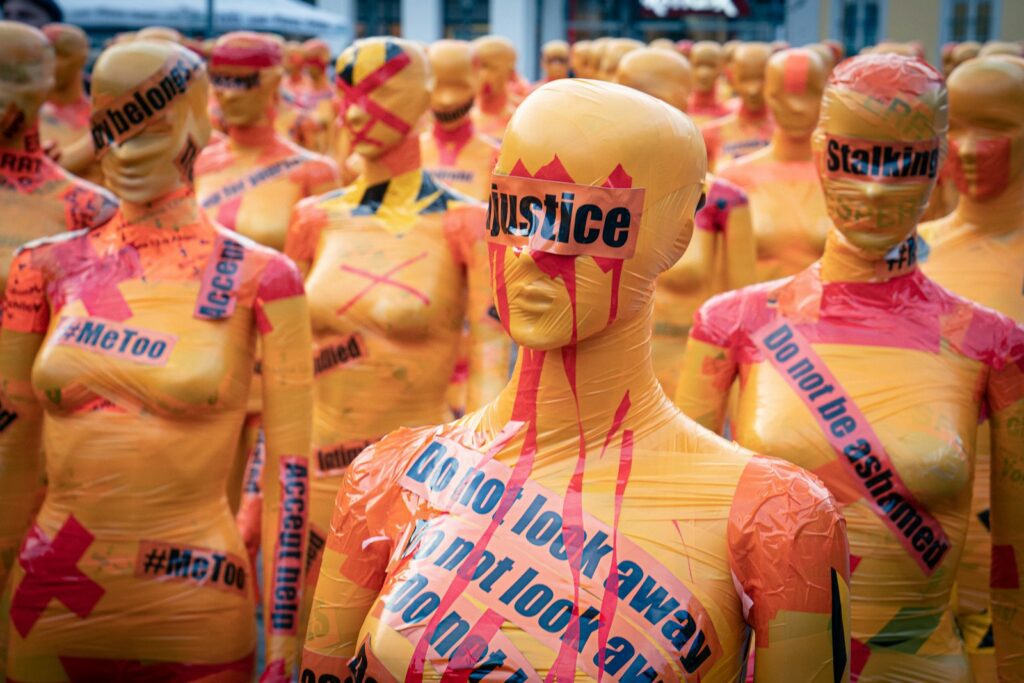
The news of Tracy Duncan’s death on June 2nd sent chills to my bones. It was a stark reminder that some battles, despite decades of fighting, remain far from won. She was 54. I am 54. Found lifeless in her Ottawa home on Carousel Crescent, her death has been labelled a femicide by Ottawa Police – the 13th such homicide in our city this year. A 57-year-old man, Stephen Doane, now faces a second-degree murder charge. Yet, for women my age, for our community, his arrest offers little solace against the raw truth: another woman, one who shared my stage in life, is gone, allegedly because of her gender.
Femicide: a chilling word
Femicide. The word itself is stark. Ottawa Police define it as the intentional killing of women, girls, Two-Spirit individuals, trans women, or gender non-conforming people precisely because of who they are. The perpetrators? Overwhelmingly men. Tracy Duncan’s name is now tragically etched into this devastating pattern, one that repeats with sickening regularity across our nation. She is now a statistic.
With each reported loss, a familiar dread surfaces: that could be me. My sister. My friend. At 54, life should be about looking ahead, perhaps to retirement or grandchildren, not constantly glancing over our shoulders. Are we safe? At any stage of life?

It is 2025, and this reality feels increasingly fraught. The political climate, particularly with the resurgence of Trump-era rhetoric south of the border, casts a discernible shadow, even here in Canada. The language and policies that previously saw protections for women eroded – funding cuts to essential services, the dismissal of gender-based violence – appear to be gaining renewed traction. This isn’t merely an abstract concern; it manifests in the vitriol seen online, on platforms like X, where femicide is downplayed, victims are blamed, and a chilling indifference takes root. Such corrosive attitudes don’t respect borders; they infiltrate our communities, complicating efforts to name and combat this violence. It’s straight out of a Margaret Atwood novel.
I find myself thinking of Tracy Duncan as a woman who, at 54, had a life, routines, and undoubtedly, future plans. Did she share laughter over coffee with friends? Was she anticipating a new chapter? To reach this point in life, often with a new sense of self and purpose, only to have that stolen, is an indictment of a society that still fails to protect its women. It’s a wearying, infuriating, and frankly, terrifying realization.
So, where do we direct this anger, this fear? Complacency is not an option. The first, most urgent need is for concrete, sustained investment. Shelters and crisis hotlines are lifelines, yet they are consistently stretched to their limits. Governments at all levels must move beyond platitudes and commit meaningful, long-term funding to ensure these services have the capacity – the beds, the counselors, the legal aid – to genuinely support those fleeing violence.
Prevention must also be a cornerstone of our response. This means embedding education about respect, consent, and healthy relationships deep within our school curricula, starting young, and ensuring boys, in particular, understand what true allyship entails. Without addressing root attitudes, we are merely bracing for future tragedies.
Our systemic responses also demand scrutiny. The Ottawa Police acknowledging Tracy’s death as a femicide is an important step, but this level of clarity and commitment must be standard practice. Law enforcement and the judiciary require ongoing, robust training to recognize the nuanced indicators of gender-based violence and to treat these cases with the gravity they deserve. Perhaps it’s time Canada seriously considers specific femicide legislation, ensuring that the profound devastation of these crimes is met with commensurate legal consequences.
Ultimately, however, the most profound change must emanate from our communities. It requires each of us to challenge the insidious comments, the “jokes” that aren’t funny, the attitudes that excuse or minimize violence against women, whether encountered online or in our daily interactions. Men, crucially, must be active participants in this cultural shift – holding friends, colleagues, and family members accountable. We need visible, impactful campaigns across all media, driving home the message that femicide is not a “women’s issue,” but a societal blight that diminishes us all.
I am 54. I am tired of the fear, tired of mourning women like Tracy Duncan, women whose lives mirror my own in age and experience, stolen too soon. While the political winds may blow cold from afar, we possess the agency to fortify our own communities. Let Tracy’s memory fuel a renewed fight: for funding, for education, for justice, and for a culture that unequivocally declares, “Enough.” I envision a world where womanhood is not a risk factor. Surely, that is a future we can all fight for.



















